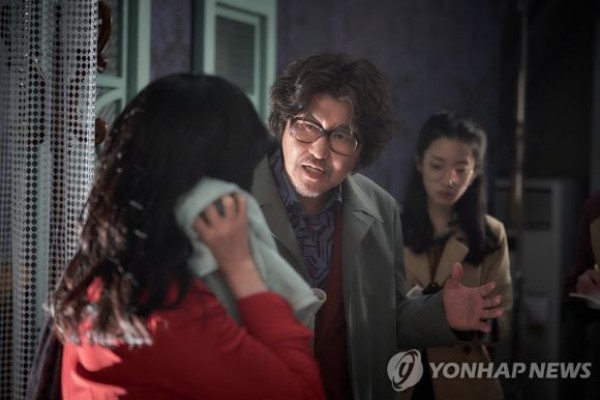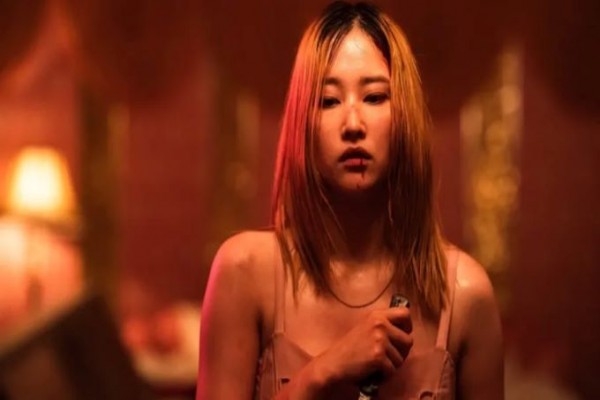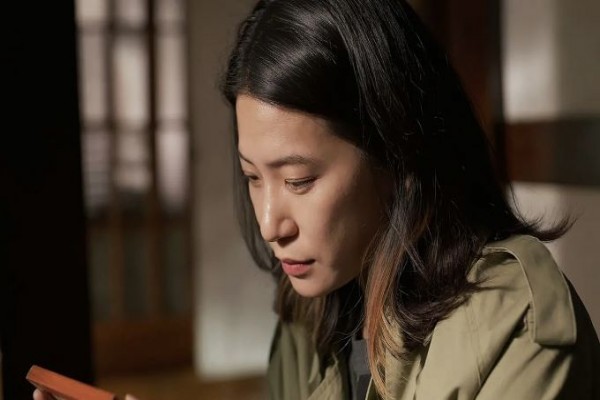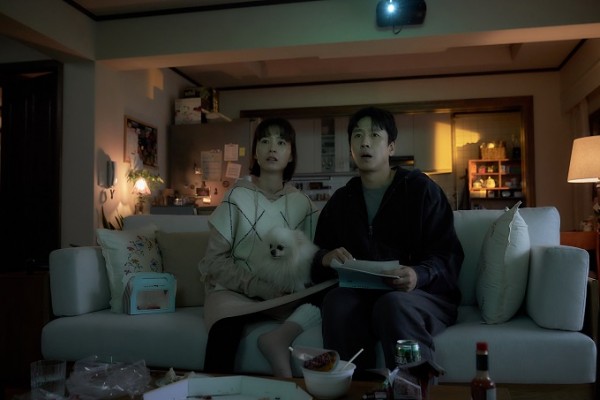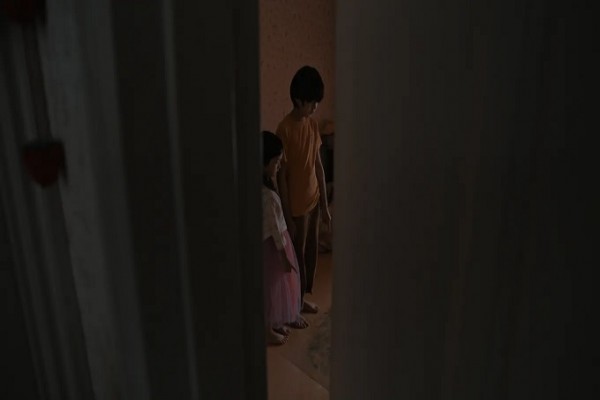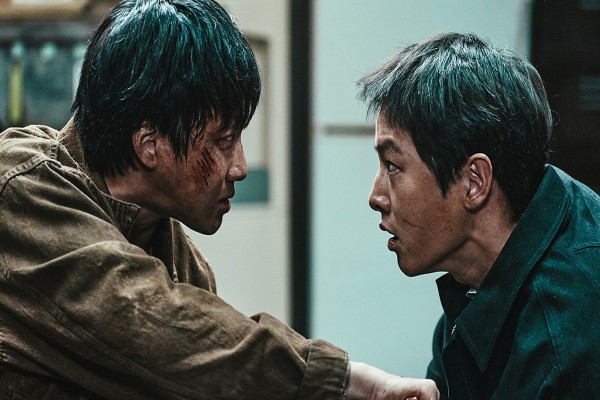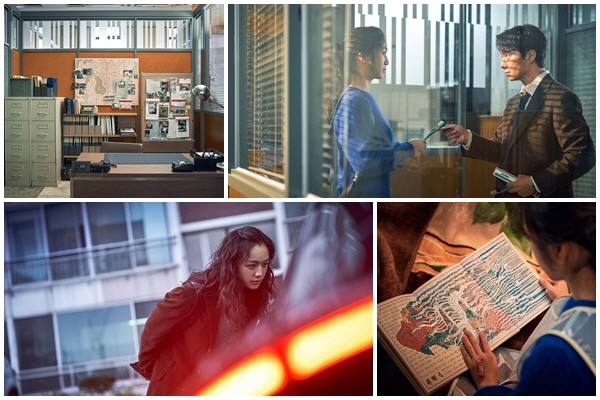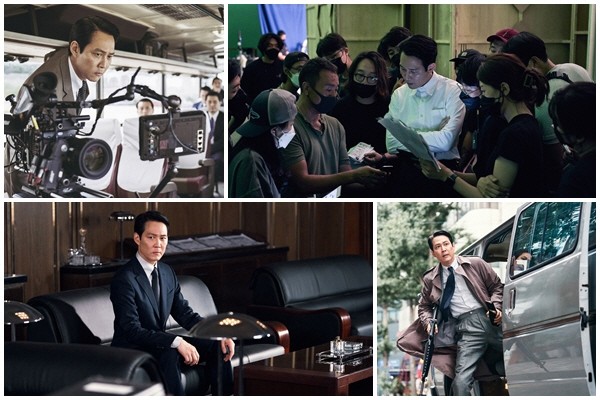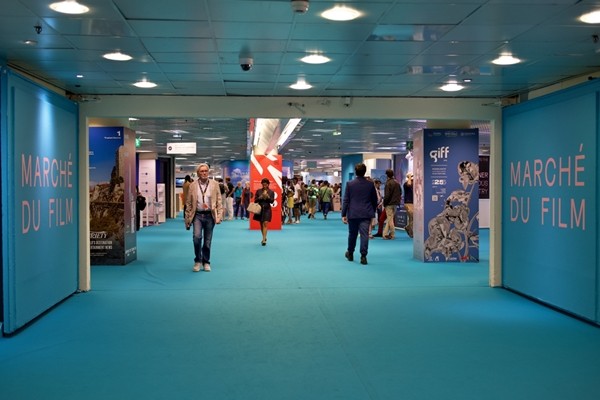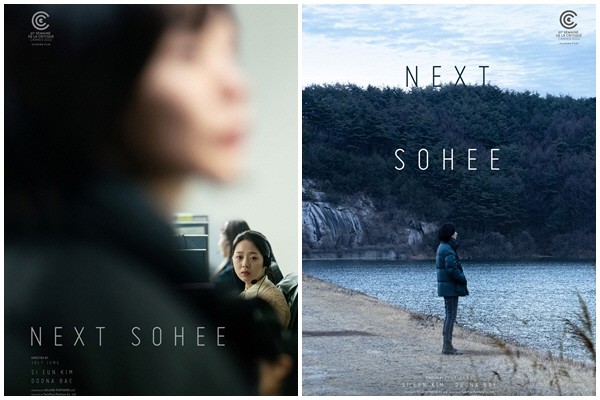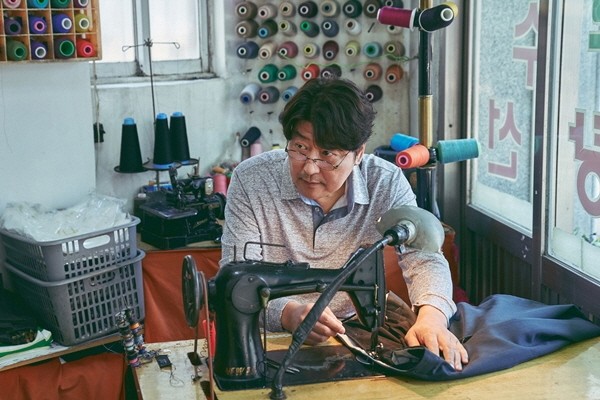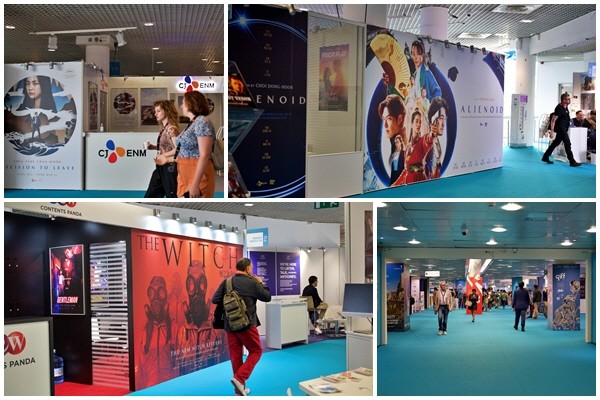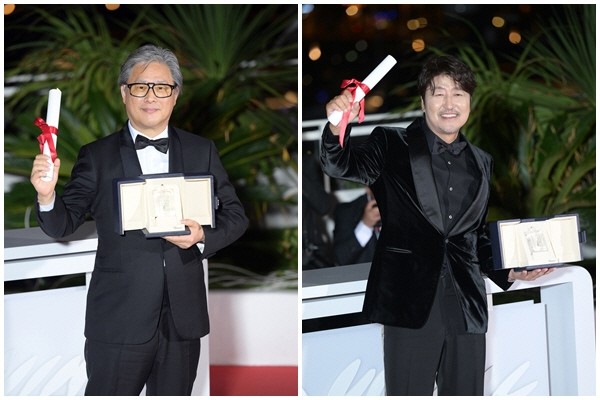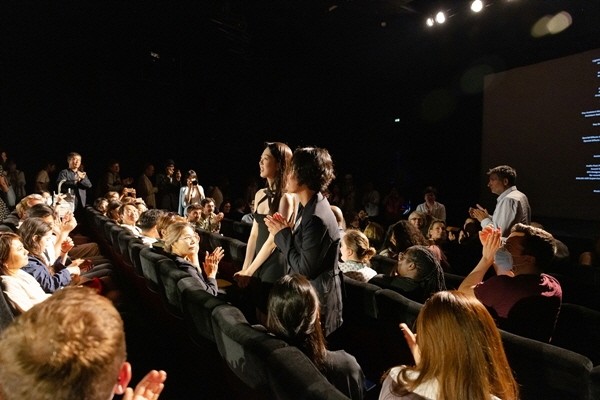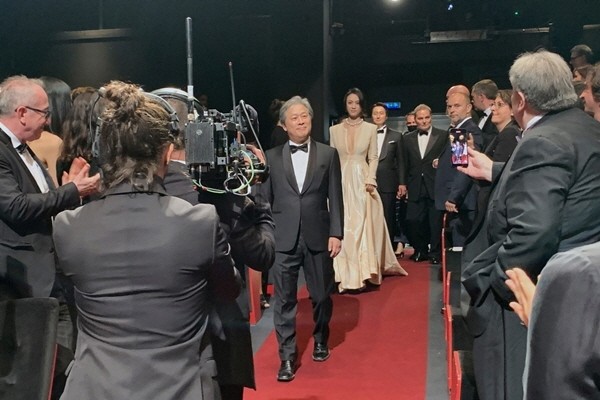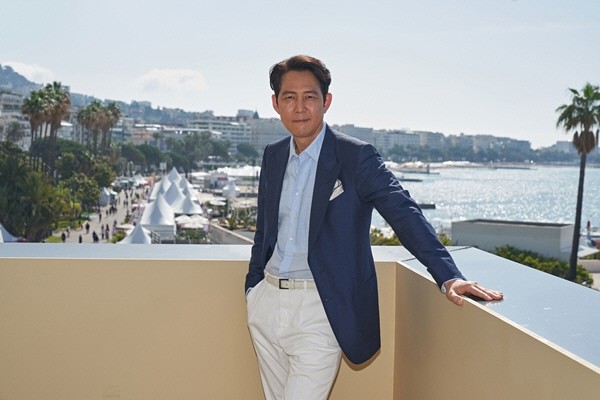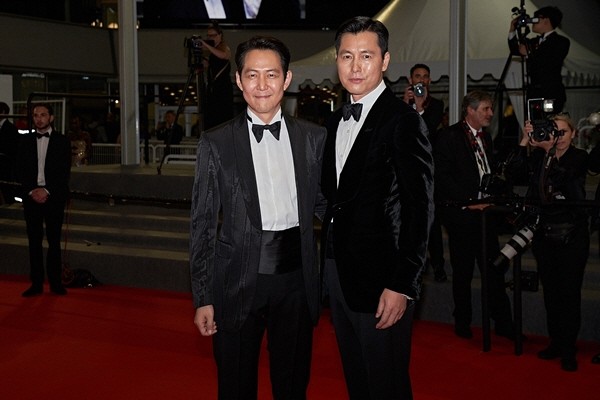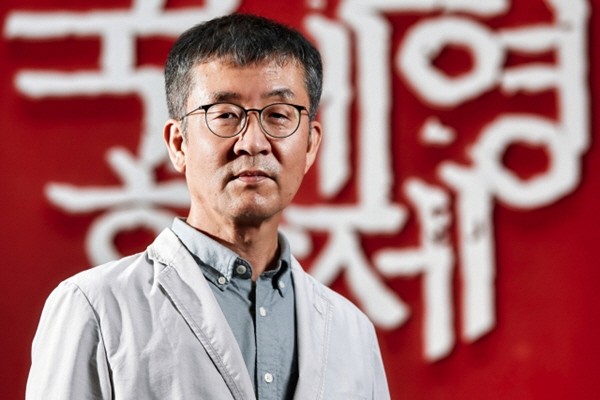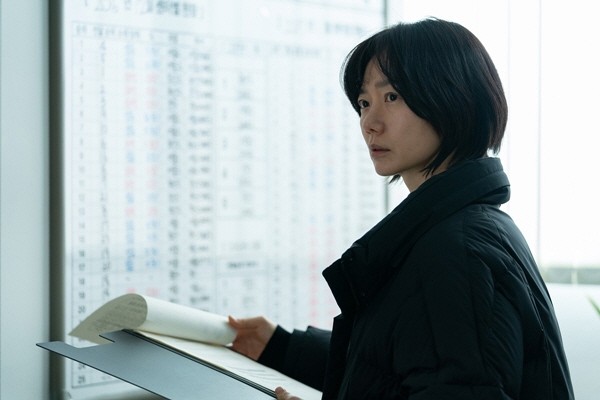130, Suyeonggangbyeon-daero,
Haeundae-gu, Busan, Republic of Korea,
48058
KWAK Sin-ae, CEO of PARASITE Production Company Barunson E&A
Aug 05, 2019
- Writerby SONG Soon-jin
- View4866
“I often fall for artists who have a uniqueness to them”

*This article contains spoilers for PARASITE.
Coming on stage at the Cannes Film Festival with Director BONG Joon-ho and lead actor SONG Kang-ho to receive the Palme d’Or this year was KWAK Sin-ae, CEO of Barunson E&A, the production company that supervised PARASITE. It was the third time she was credited as a film executive producer, following KWAK Kyung-taek’s RV: Resurrected Victims (2017) and UM Tae-hwa’s VANISHING TIME: A BOY WHO RETURNED (2016) But as it turns out, she has been a regular fixture in Korean cinema, taking on a variety roles such as film journalist, planner, producer and marketer over a career spanning 20 years. On a day when it had just been reported that PARASITE was performing well abroad, specifically in France and Vietnam, we met with KWAK Sin-ae to talk of her relationship with BONG Joon-ho and PARASITE. We also tried to know more about the future plans for Barunson E&A, which has been a regular presence in Cannes with films like KIM Jee-woon’s The Good, The Bad, And The Weird (2008) and CHANG’s The Target (2014).
PARASITE has now been crowned as a 10-million admission film in Korea. It has also been reported that the film is having the highest attendance for a Korean production in France. What are the schedules for the next releases abroad?
It was first released in France and then in June in 9 countries, including Switzerland, Hong Kong, Vietnam, Indonesia, Australia, Singapore and Taiwan. In July, it was released successively in Russia, Thailand and Malaysia, among others. We are also currently in talks with China. The distribution rights to PARASITE have been sold to more than 200 countries, which makes it one of the more well-received Palme d’Or winners by the market. As a result, there is a general haste to release it as soon as possible in each country.
You have now become the most eminent executive producer thanks to PARASITE. You have previously been a film journalist, a marketer, a planner, a producer… So, how would KWAK Sin-ae the executive producer introduce herself?
It’s not like I had a grand plan to work across all areas (laughs). Looking back, I had the vague idea of entering the core part of the film industry since my days working as a film journalist at film magazine Kino. I wanted to find a job that would allow for me to get involved in films before they come into being. And so, shelving my journalist life, I created the PR company Barun Life and took my first step into the industry. That’s how I started working in films, and the choices I made on occasion to keep it as my livelihood until now brought me here today. For that reason, I am an office worker who, as a professional filmmaker, strives to not be pushed out of the industry.
I have met BONG Joon-ho many times before in private (KWAK’s husband is film director JUNG Ji-woo, and her brother KWAK Kyung-taek Ed.). But I think that the way we already knew each other before mattered more than our personal connection. Back in 1995, when I was a film journalist, BONG was an up-and-coming new director who had just released a short film. And so, BONG remembered me as the “journalist who pens the most intelligible pieces in Kino”, while I thought of him as the “remarkable new director who made Incoherence at the Korean Academy of Film Arts”. Later on, when I entered the film industry, he was still remembering me in such a way that he would said, “So that’s what KWAK Sin-ae from Kino has been up to”. I was also a fan of BONG, believing that he had a promising career ahead and looking for it.
When was it that you really started to discuss the production of PARASITE?
When BONG was doing pre-production on Snowpiercer (2013) at Moho Film, PARK Chan-wook’s company, he would visit our office every once in a while since it was close by. From then on, we would exchange light talks in such a way that suggested we would work together on a film he had in the works and that would be shot in Korea. And then, toward April 2015, BONG made me a formal offer by showing me a treatment for PARASITE. Until then, I only had a vague sense that we might do it eventually.
It is BONG Joon-ho’s first Korean film in ten years. Wasn’t it a burden?
We offered a sacrifice to the spirits before starting production, and I heard BONG say then that he felt he had come back home. BONG for his part seemed to be very comfortable rather than having any pressure. The films he made in the States had a scale of initial production costs much bigger than ours, and for a film director, big production costs mean more matters they has to determine and an increase in workload. By comparison, PARASITE constituted a film that could be made with ease, without any burden. What’s more, BONG Joon-ho is the type of person that knows well every aspect of the production process, so it was rather me, the newbie executive producer, who relied on him a lot.

I’m curious about the atmosphere on the set.
I watched around 80% of the shoot, and the atmosphere was joyful every time we had ten actors or more gathered there. Based on this, it was a pleasure and happiness to contribute to a film from BONG Joon-ho. Besides, we had to keep the synopsis of the film secret, right? Come to think of it, this could only make the cohesion between the actors and staff members stronger. You couldn’t say a word about it anywhere else, so it made people more talkative when it was just us on the set. (laughs)
Although PARASITE is a very Korean film, it has been very well received at film festivals and by audiences abroad. Was there a different approach in terms of marketing?
Nothing particular. First of all, the basement at the PARK’s is a setting familiar to the Americans as well, since they have panic rooms. Even something like “Taiwan Castella” was instantly understood as a troubled franchise. It might be difficult for the audiences in Taiwan and Korea to see a separation between their own lives and the film, but overseas audiences probably understand it a bit more as a genre film. For instance, we enjoy watching Ki-taek’s family carrying out their plan to get Mun-gwang fired as if it was a scene from an opera or a musical. The audience broke out in applause at the end of that scene even at the Cannes Film Festival. We don’t see that kind of reaction in Korea. There is also the scene where Mun-gwang tumbles down the stairs, which is difficult to watch even for me, but it is considered overseas as one of the funny scenes.
On which ground do you chose your films?
If I think that I really want to watch the next project of a director, that it would be interesting, and if I judge possible for it to exceed the break-even point, then I decide to produce it. UM Tae-hwa’s VANISHING TIME: A BOY WHO RETURNED (2016) was like that. UM Tae-hwa has something inherently unique to him, and I find and find this extremely attractive. I often fall for artists who have that uniqueness to them. Executive producers ultimately have the role of looking after creators, and it would be difficult to take care of people you don’t fall in love with, isn’t it? However, this being my first production, there were parts that were lacking, no matter how much I prepared in advance. That’s why VANISHING TIME: A BOY WHO RETURNED (2016) has remained a title that compels me to keep replaying and analyzing the game in my head. Doing this helped me a lot with PARASITE, directly and indirectly.




















